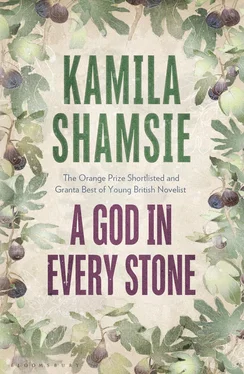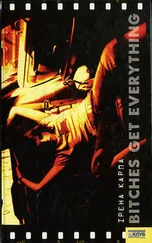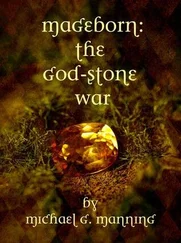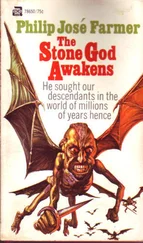The band followed up the ‘Marseillaise’ with their regimental song, ‘Zakhmi Dil’, all the men joining in, including most of the English officers. Kalam turned to Qayyum, arms spread in resignation as he sang the opening words on a platform in rural France where the Pashto language might never have been heard before: There’s a boy across the river / With a bottom like a peach / But alas! I cannot swim. When the song ended the Frenchman, for whom none of the officers had provided a translation, declared, Magnifique! And the woman rested both elbows on the back of a bench and leaned forward, looking straight at Qayyum. Magnifique, she echoed.
Embarrassed at himself for wondering if she wasn’t talking about the song, Qayyum looked away and around the platform; how proud they were — Punjabis, Dogras, Pashtuns, all! — to be received with such warmth by these strangers. The generosity of the Frenchman was all it had taken to allow them to set aside the disgruntlement they had been carrying around since Marseilles, where they were told they had to give up their turbans and drab-and-green regimental wear in favour of balaclavas and badly fitting, prickly uniforms of grey that were better suited to the climate. And their guns, too, had been taken away because they weren’t right for the French ammunition; the new rifles were unfamiliar, the weight, the shape of them not yet a natural extension of the soldiers’ bodies.
But a few minutes later, in the storage room where the smell of coffee beans soon fused with an even earthier scent, the French girl showed Qayyum how quickly an unknown body could become joined to yours. He was tentative until that became impossible. His only previous experience had been in Kowloon, the night before the 40th shipped off to France, with a woman who didn’t pretend he was giving her anything she wanted other than the money he’d been told to place on the table before they started. That had been less troubling in some way than the responses of this girl who seemed to derive pleasure from things that made him worry he was hurting her. Would a Pashtun woman react this way? he wondered, almost as soon as it was over, the thought making him feel ashamed both for himself and the French girl who kissed him on the mouth and said something he couldn’t understand. It was only then he realised they hadn’t said a word to each other, and when he spoke to her in his broken English she shook her head and laughed. He had assumed all white people could understand each other’s language in the way all the Indians in the Army had at least one tongue in common.
Kalam was watching for him when he stepped out of the storage room, his expression mocking, slightly hurt.
— Watch out, brother. You are too much in love with these people already.
— Salute your officers, Sepoy.
— Yes, sir, Lance-Naik, sir!
His salute was so sharp it meant to draw blood. Qayyum — his promotion from sepoy just days old — dismissed him with a lazy wave of his hand, refusing to take the challenge. Yes, he was in love with these people, this world. The shame had passed as quickly as it had arrived, and he drew himself up to his full height as the train whistled its arrival, understanding at that moment what it was to be a man — the wonder, the beauty of it.
They arrived in Ouderdom in the rain, Kalam hobbling on the ankle he had twisted when he slipped on a slick cobblestone. The fall had been a bad one, and Qayyum fell out to help him up, putting Kalam’s arm around his own shoulders, prepared to support him for as long as they needed to keep marching. But a Belgian woman came out of her house and put salve on Kalam’s ankle, bound his foot in a bandage and disappeared back inside without a word. Kalam had felt shamed by that and hadn’t said a word since, except to tell Qayyum that he could walk on his own feet.
But now Kalam looked up across the farmland and smiled — there, walking across the field, were men whose faces were known to the 40th, not personally but in the set of their features, their expression. The soldiers of the Lahore Division, the first of the Indian Army to arrive in France. Above the howl of the wind a voice called out in Pashto, What took you so long? Too many peach bottoms distracting you along the way?
— We thought we’d give you some chance at glory before taking it all for ourselves!
Kalam, restored to good humour. Qayyum looked around at the men of the 40th grinning, name-calling. Not just the Pashtuns, but also the Dogras, the Punjabis. Brothers recognising brothers with a jolt of love, a shot of competition. What Qayyum felt on seeing battalion after battalion of Indian soldiers bivouacked on the farmland was something quite different — a deep, inexplicable relief.
The havildar-naik of 57th Wilde’s Rifle fell into step with Qayyum as he walked across the moonlit stretch of grass. No sound except that of snoring soldiers and the call of a solitary night-bird.
— Worrying about tomorrow, Lance-Naik?
— Sir, no, sir.
— I don’t want to be ‘sir’ just now. Mohammad Khan Afridi, from Landi Kotal.
— Qayyum Gul. Peshawar.
— Do you think one day they’ll tell stories about us in the Street of Storytellers?
The Afridi lit a cigarette, handed it to Qayyum, and lit another one for himself. Qayyum’s shoes squeaked on the wet grass as he rocked back on his heels, blowing smoke up into the air, watching the ghostly trail of it ascend and dissipate.
— Did you hear about the 5th Light Infantry? the Afridi asked.
— No, sir. What? Are they here also?
— No, Singapore. On trial for mutiny. Not all of them, but many.
— Pashtuns?
— Pashtuns and Rajput Muslims. They heard a rumour they would be sent to Turkey to fight fellow Muslims, so they mutinied. Killed their officers.
Qayyum swore loudly, and the older man nodded his head, held the tip of his cigarette against an oak leaf and burned a circle into it. The smell carried a hint of winter fires.
— They join an army which fights fellow Pashtuns in the tribal areas, but they’ll mutiny at the thought of taking up arms against Turks. That’s our people for you, Lance-Naik.
Qayyum shook his head, looked over the encampment. At 5.30 tomorrow morning they’d be on the march again. He cleared his throat, moistened his lips.
— What’s it really like? Fighting the Germans?
— Go and sleep now, Lance-Naik. Dream of Peshawar. That’s an order. You’ll have the answer to your question tomorrow, at Vipers.
Again and again the pain plunged him into oblivion and a fresh burst of gunfire pulled him out. Then there was silence, and he waited for the darkness to claim him but there was only fire racing along his face, licking deep into his eye-socket. An ant climbed a blade of grass and his laboured breath blew it off in the direction of the stream, a few feet away, unreachable; the sun that made the fire burn more fiercely on his face turned playful as it dipped into the balm of the water. I will die here, Qayyum thought, and waited for Allah or his family or the mountains of Peshawar to take hold of his heart. But there was only the fire, and the blood drowning his eye and the stench of dead men. Was he the only man alive, or were there others like him who knew the gunners would find them if they twitched a limb?
Perhaps he was dead already, and this was hell. The eternal fires, yes. It must have happened just as they ascended the slopes — the Germans were right on the other side of it, just over the crest of the hill. But the first round of bullets must have killed him and flung him into this devil-made world in which men had to run across a field without cover, stumbling over the corpses of their brothers, and when the tattered remnants of one division reached the enemy lines on the slope across the field, a yellow mist entered their bodies and made them fall, foam at their mouths. Cover your nose and mouth, the order came, swift and useless; if they’d had their turbans they would have wound them around their faces but there were only the balaclavas. Qayyum remembered the handkerchief in his pocket, the one Captain Dalmohy had instructed him to dip into the buckets of liquid they passed, and he held it up against his face even as he watched the breeze move the yellow mist eastward. So this wasn’t hell. The mist would have leapt into his lungs if it were.
Читать дальше












